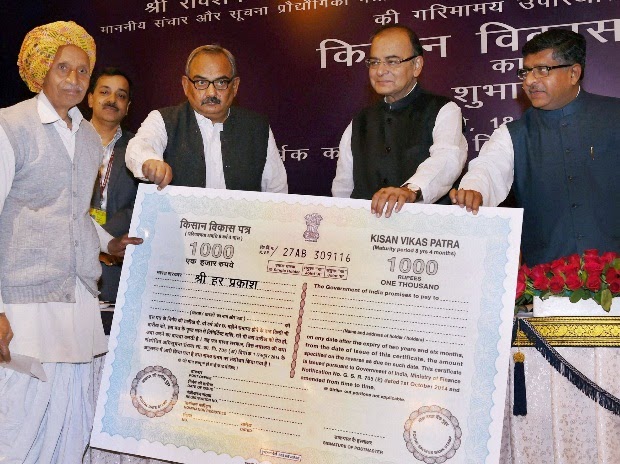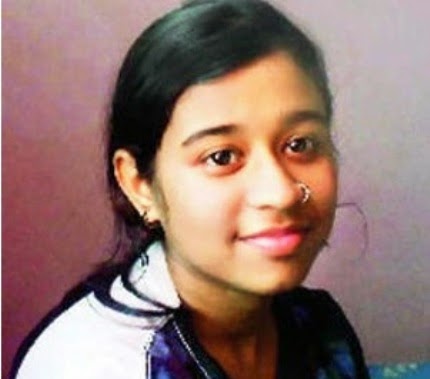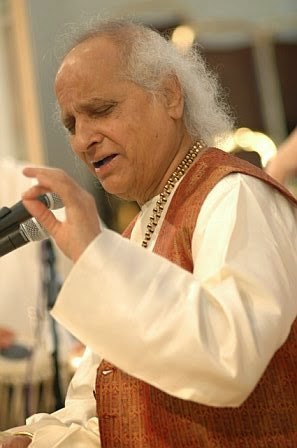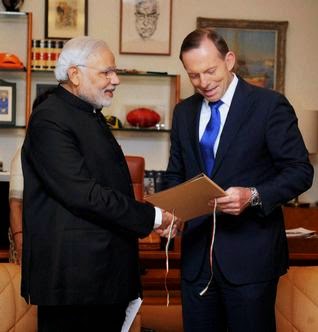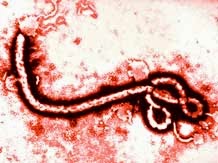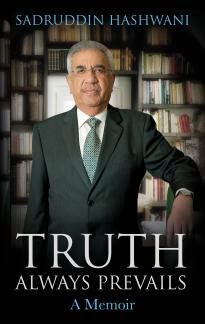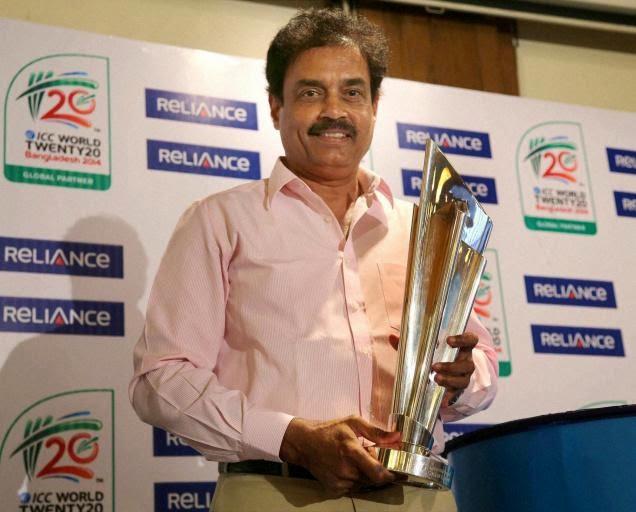Finance / Business
1. SBI approved 1 billion US dollar loan for
Adani Mining to develop Carmichael coal mine project
Adani Mining to develop Carmichael coal mine project
- ·
State Bank of India (SBI) on 17 November 2014 approved 1 billion US
dollar loan for Adani Mining to develop Carmichael coal mine project near
Clermont in Central Queensland, Australia. - ·
The announcement related to the signing of memorandum of understanding
between Adani Group and SBI was made in the third week of November 2014. - ·
The announcement comes close on the heels of clearance of the Adani
Group’s proposal by the Queensland State of Australia on 17 November 2014. The
Adani group plans to build a 7 billion US dollars coal mine project. - ·
Besides, Queensland State also announced a major investment in rail
infrastructure to support the coal mine project of the Adani Group. - ·
The Carmichael coal, railway and port project includes building
Australia’s largest thermal coal mine in the north Galilee Basin approximately
160km north-west of Clermont in Central Queensland, linked by a new 388 km
standard gauge rail line to a new terminal at Abbot Point Port near Bowen. - ·
The company aims to build the project by end of the year 2017 and the
produced coal from the region will be sent 400 km (250 miles) by rail to
Australia’s east coast. - ·
Adani Mining is the subsidiary of the Adani Enterprises in Australia.
The CEO and country head is Jeyakumar Janakaraj.
2. Union Government relaunched Kisan Vikas
Patra scheme to encourage small savings
Patra scheme to encourage small savings
- ·
The Union Government on 18 November 2014 relaunched Kisan Vikas Patra
scheme (KVP) in New Delhi to encourage the habit of small savings among the
citizens. - ·
The scheme will soon be made available through designated branches of
nationalized banks across the country.
Highlights of the Kisan Vikas Patra scheme
(KVP)
(KVP)
- ·
The scheme will provide facility of unlimited investment by way of
purchase of certificate from post office in various denominations. - ·
The KVP will be available to the investors in the denomination of 1000,
5000, 10000 and 50000 rupees with no upper ceiling on investment. - ·
The certificates can also be issued in single or joint names and can be
transferred from one person to any other person. The investment made in the
certificate will double in 100 months. - ·
The facility of transfer from one post office to another anywhere in
India and of nomination will also be available under the scheme. - ·
Kisan Vikas Patra scheme has unique liquidity feature, where an investor
can encash his certificates after the lock-in period of 2 years and 6 months
and thereafter in any block of six months on pre-determined maturity value. - ·
With a maturity period of 8 years 4 months, the collections under the
scheme will be available with the Union Government for a fairly long period to
be utilized in financing developmental plans of the Centre and State
Governments. - ·
Kisan Vikas Patra (KVP), a certificate savings scheme was launched by
the Union Government on 1 April 1988. The scheme provided facility of unlimited
investment by way of purchase of certificates from post offices in various
denominations.
3. Exports declined by 5 percent to 7-month
low of 26 billion US dollars in October 2014
low of 26 billion US dollars in October 2014
- ·
Merchandise exports declined by 5 percent to 7-month low of 26 billion
US dollars in October 2014 resulting into widening of trade deficit to 13.3
billion US dollars in October 2014. - ·
This was revealed by the India’s Foreign Trade (Merchandise) data
released by the Department of Commerce, Union Ministry of Commerce and Industry
on 17 November 2014. - ·
The decline in exports occurred mainly on account of fall in shipments
of petroleum products, electronics, engineering items, gems & jewellery,
and iron ore. - ·
On the other hand, driven by gold imports, total merchandise imports
increased 3.16 percent to 39.45 billion US dollars in October 2014. The gold
imports surged 280 percent to reach 4.1 billion US Dollar during the month of
October 2014. - ·
This widened the trade deficit to 13.3 billion US Dollar in October 2014
from 10.59 billion US Dollar in October 2013. However, the gap was lower than
14.24 billion US Dollar trade deficit in September 2014 - ·
Cumulative total exports in the April-October 2014 period stood at
189.79 billion US Dollar which was 4.72 per cent higher than in the
corresponding period of the 2013. - ·
The cumulative value of imports for the April-October 2014 period was
273.55 billion US Dollar which was 1.86 per cent higher than imports in the
same period in 2013. - ·
The trade deficit during April-October 2014 period was at 83.75 billion
US dollar, lower than the deficit of 87.31 billion US Dollar in April-October
2013.
4. Dr Hasmukh Adhia nominated as Director on
the Central Board of Directors of RBI
the Central Board of Directors of RBI
- ·
Union Government on 17 November 2014 nominated Dr. Hasmukh Adhia as a
Director on the Central Board of Directors of the Reserve Bank of India (RBI).
He will replace Gurdial Singh Sandhu. - ·
As per the press release of RBI, his nomination is effective from 11
November 2014. - ·
Hasmukh Adhia is currently working as Secretary in Department of
Financial Services, Union Ministry of Finance. - ·
He is a 1981 batch Gujarat cadre IAS officer. He had worked with the
then Gujarat chief minister and present Prime Minister Narendra Modi from May
2004 to May 2006. - ·
He also has served as Additional Chief Secretary, finance department in
the Gujarat government apart from stints in Gujarat Industrial Investment
Corporation (GIIC) and Gujarat Industrial Development Corporation (GIDC).
5. US Exim Bank opens $1-bn credit line for
renewable energy developers
renewable energy developers
- ·
The US Exim Bank has agreed to provide $1-billion medium and long-term
dollar loans to finance American technologies, products and services for clean
energy development by the Indian Renewable Energy Development Agency (IREDA). - ·
The credit facility is part of a memorandum of understanding signed
between the two organisations on Tuesday. - ·
Renewable energy developers in India working with IREDA can avail
themselves of the credit facility for importing US goods and services in the
sector. The credit facility will also be available for financing 30 per cent of
domestically manufactured components. - ·
The loans can be repaid over a period of 18 years with the same fixed
rate of interest. - ·
“The proposed credit facility carries no specific commitment on the part
of IREDA and will depend on the import of US equipment to India and the
attractiveness of the credit facility to the project developers in India,” an
official statement said. - ·
Overall, the MoU establishes a framework for cooperation in the
financing of creditworthy entities for renewable energy projects and
facilitating the export of goods and services from US to India. - ·
Upendra Tripathi, Secretary, Ministry of New and Renewable Energy, said
that sectors such as solar, wind, hydro, and waste-to-energy have been
identified as priority areas of clean energy investment cooperation as part of
the MoU.
India
6. India and Australia signed five pacts and
agreed on early closure of Civil Nuclear Deal
agreed on early closure of Civil Nuclear Deal
- ·
India and Australia on 18 November 2014 signed five pacts on social
security, transfer of sentenced prisoners, combating narcotics trade, tourism,
and Arts and Culture.
Highlights of the agreements
- ·
The Social Security Agreement will help in making the business relations
stronger, especially in the Services Sector. It will provide for social
security and superannuation benefits for those who have been residents of the
other country on basis of equality of benefit, export of benefits and avoidance
of double coverage. It will lead to
greater economies and promote the flow of professionals. - ·
Agreement concerning Transfer of Sentenced Prisoners: It will
facilitate, regulate and lay down procedures for the transfer of sentenced
persons and enable rehabilitation and reintegration of sentenced persons into
society. - ·
MoU on Combating Narcotics Trafficking and Developing Police
Cooperation: It places priority on tackling illicit trade, diversion of
precursors, asset forfeiture and drug money laundering. It will help develop strategies and
procedures for operations to disrupt and dismantle transnational narcotic
related threats. - ·
MoU on Cooperation in the Field of Arts and Culture: It will promote
cooperation through exchange of information, professional expertise, training
and exhibitions in the field of culture.
It will deepen understanding between the people, institutions and art
genres and promote sound and sustainable artistic and cultural activities. - ·
MoU in the Field of Tourism: It will encourage cooperation in tourism
policy, information exchange, interaction between tourism stakeholders,
training and investments in hospitality sector and promote the importance of
the tourism sector in economic development and employment generation.
Moreover,
India and Australia agreed on early closure of the civil nuclear agreement
which will give Australia a chance to participate in one of the most secure and
safe nuclear energy programme in the world.
India and Australia agreed on early closure of the civil nuclear agreement
which will give Australia a chance to participate in one of the most secure and
safe nuclear energy programme in the world.
By
concluding the civil nuclear pact, uranium trade will be facilitated between
the two countries. Australia has about 40 percent of the world’s uranium
reserves and exports nearly 7000 tonnes of uranium annually.
concluding the civil nuclear pact, uranium trade will be facilitated between
the two countries. Australia has about 40 percent of the world’s uranium
reserves and exports nearly 7000 tonnes of uranium annually.
India and
Australia had commenced negotiations for the sale of uranium in early 2012. The
two-way trade stands at 15 billion US dollars a year.
Australia had commenced negotiations for the sale of uranium in early 2012. The
two-way trade stands at 15 billion US dollars a year.
Other Decisions taken by the two countries
- ·
Australian Prime Minister Tony Abbott and his Indian Counterpart
Narendra Modi agreed to have a Free Trade deal by 2015 end. - ·
India will organise a Make in India show in Australia in 2015 while
Australia would hold a business week in India in January 2015. - ·
The countries too agreed to speed up negotiations on the Comprehensive
Economic Partnership Agreement. - ·
India and Australia also agreed on a Framework for Security Cooperation.
Security and defence are important and growing areas of the new India-Australia
partnership for advancing regional peace and stability, and combating terrorism
and trans-national crimes. - ·
India and Australia signed the new Cultural Exchange Programme where
India will establish a Cultural Centre in Sydney by February 2015. India will
hold a Festival of India in Australia in 2015 and tourism weeks in Australia. - ·
Persons of Indian Origin (PIO) and Overseas Citizen of India (OCI) card
holders need not present themselves at police stations while visiting India
from now onwards. The people who have a Persons of Indian Origin (PIO) card
will now get a lifetime visa to India.
7. Assam government presented 1st state
bravery award to Gunjan Sarma
bravery award to Gunjan Sarma
- ·
The Assam government on 17 November 2014 presented the first state
bravery award to Gunjan Sarma in Guwahati. - ·
15 year old Gunjan, a resident of Sivsagar district was awarded with
Assam’s first ever bravery award for saving lives of 10 school children who
were taken hostage by a gunman on 4 December 2013. - ·
Gunjan Sarma, a student of Nazira Central School in Sivasagar district
of Assam volunteered to accompany the gunman who hijacked their school van
carrying students. She volunteered to accompany the gunman in order to save
lives of other students but later was abandoned in a dense forest along Assam-Nagaland
border at night. - ·
She managed to find her way out of the forest at the dawn. Her saga of bravery compelled the Assam
government to institute a state bravery award.
8. Fourth India – China joint military
exercise Hand-in-Hand 2014 started in Pune
exercise Hand-in-Hand 2014 started in Pune
- ·
The Fourth India-China Joint Training Exercise Hand-in-Hand 2014 began
at Aundh Military Station in Pune, Maharashtra on 17 November 2014. The
exercise will end on 25 November 2014. - ·
The 12 day Indo-China joint exercise is aimed to acquaint both the
armies with each other’s operating procedures in the backdrop of counter
terrorism environment.
Objective of the Military Exercise
Hand-in-Hand 2014
Hand-in-Hand 2014
- ·
To enhance confidence and trust between the two armies that may be
called upon to grapple with anti terrorism operations even under the UN mandate - ·
To uphold the values of Peace, Prosperity and Stability in the region by
jointly eradicating terrorism - ·
To develop mutual understanding and respect for each other’s military - The Chinese
contingent for the exercise comes from 13 Group Army, Chengdu Military Region
and comprises an infantry company along with supporting staff. 1st edition was
held in 2007 in China.
9. Akash surface-to-air missile test fired
- ·
Akash surface-to-air missile was test fired by the Indian Air Force
(IAF) from Integrated Test Range at Chandipur near Balasore, Odisha on 17
November 2014. It was test fired as part
of user trial by the Air Force. - ·
The missile flew at a supersonic speed over a distance of 14 km and
destroyed a target called Para flare at a low altitude of 1.2 km. The
Para-flare was dropped by a MiG-27 aircraft of the IAF. - ·
Akash missile is India’s first indigenously designed and developed
missile. The missile has been developed by Defence Research and Development
Organisation (DRDO) as part of the Integrated Guided Missile Development
Programme. - ·
The missile is a medium range surface-to-air anti-aircraft defence
system with a strike range of 25 km. It can carry a warhead of 60kg and it is
packed with a battery that can track and attack several targets simultaneously.
10. Pandit Jasraj conferred with Sumitra
Charat Ram Award 2014 for Lifetime Achievement
Charat Ram Award 2014 for Lifetime Achievement
- ·
Veteran classical vocalist Pandit Jasraj was on 17 November 2014
conferred with the Sumitra Charat Ram Award 2014 for Lifetime Achievement. - ·
Pandit Jasraj joined the list of eminent personalities who were honoured
with the award earlier including Pt Birju Maharaj, Kishori Amonkar and Mayadhar
Raut. - ·
The award function marked the beginning of a year-long celebrations to
commemorate the 100th birth anniversary of Ram who was born on 17 November 1914
in Meerut. - ·
The award was instituted in 2011 to honour stalwarts in art and was
named after Sumitra Charat Ram who founded the Shriram Bharatiya Kala Kendra in
1952. - ·
She was instrumental in successfully resurrecting Kathak under the
banner of the Shriram Bhartiya Kala Kendra. - ·
Previously Pandit Jasraj has been awarded with a number of titles,
including Padma Vibhushan, Padma Bhushan and Sangeet Natak Akademi Award.
11. India has world’s largest youth
population: UN report
population: UN report
- ·
With 356 million 10-24-year-olds, India has the world’s largest youth
population despite having a smaller population than China, a latest UN report
said today. - ·
China is second with 269 million young people, followed by Indonesia (67
million), the US (65 million) and Pakistan (59 million), Nigeria with 57
million, Brazil with 51 million, and Bangladesh with 48 million, the United
Nations Population Fund’s (UNFPA) State of the World’s Population report said. - ·
It said developing countries with large youth populations could see
their economies soar, provided they invest heavily in young people’s education
and health and protect their rights. - ·
Within this generation are 600 million adolescent girls with specific
needs, challenges and aspirations for the future, the report said. - ·
The report titled ‘The power of 1.8 billion’, said 28 per cent of
India’s population is 10- to 24-year-olds, adding that the youth population is
growing fastest in the poorest nations. Global number of youths is highest
ever. - ·
As the world is home to 1.8 billion young people between the ages of 10
and 24 year, 9 in 10 of the world’s young population live in less developed
countries.
12. PM gifts Rani of Jhansi’s petition to
Abbott
Abbott
- ·
Prime Minister Narendra Modi on Tuesday gifted to his Australian
counterpart Tony Abbott Australian lawyer John Lang’s 1854 petition against the
East India Company on behalf of Rani Lakshmibai . - ·
Mr. Modi gave the gift to Mr. Abbott just ahead of bilateral talks. - ·
“John Lang’s original petition of 1854 on behalf of Jhansi ki Rani against
the East India Company,” External Affairs spokesperson Syed Akbaruddin tweeted. - ·
Earlier, Mr. Modi was given a ceremonial guard of honour and a 19-gun
salute at the forecourt of the Parliament. Prime Minister Abbott and several
Indians were present on the occasion. Then he proceeded towards the Prime
Minister’s Office for bilateral talks. Born in 1816 in Sydney, Lang is
generally regarded as Australia’s first native novelist. As a man of many
talents, he was also a lawyer, journalist and born traveller. In 1842, he
sailed to India and made the country his new home, even learning the Hindustani
language. While carrying on a successful legal practice, he started a newspaper
in 1845 called The Moffusilite, published initially from Meerut and later from Mussoorie.
The paper often took a critical stance against the East India Company’s harmful
policies and consequently he was sued and briefly jailed by the Company. - ·
In 1854, Lang became the counsel of Lakshmibai — an iconic figure in the
Indian uprising of 1857.
13. First Ebola case surfaces in India,
patient quarantined
patient quarantined
- ·
In the first case of Ebola in the country, a national returning from
Liberia has tested positive and has been isolated at a special facility at
Delhi airport. - ·
The health ministry said the 26-year-old man, who reached here last
Monday, was already treated for the disease in the African country and had no
symptoms. But the ministry said his semen samples tested positive, prompting
authorities to isolate him. - ·
“The situation is under control and there is no need for any alarm.
All precautions are being taken,” the ministry said. - ·
It said during recovery, people continued to shed virus in body fluids
for variable periods. - ·
But the virus in his semen samples may transmit the disease through sex
up to 90 days from the time of clinical cure, it said. - ·
He will remain in isolation in the facility till his body fluids test
negative and he is found medically fit to be discharged, it said. The ministry
insisted the man was a treated and cured case.
International
14. Book titled Truth Always Prevails written
by Sadruddin Hashwani released
by Sadruddin Hashwani released
- ·
Penguin Books on 17 November 2014 released the Book titled Truth Always
Prevails. The book has been written by Sadruddin Hashwani. The book was
released in Pakistan. - ·
The book Truth Always Prevails is a self-narrated account of personal
and entrepreneurial experiences by one of the most successful businessmen of
Pakistan with a global footprint. This is a story of Pakistan and the Pakistani
Dream. - ·
Truth Always Prevails is a memoir of not only the struggles of the
eventful life of an entrepreneur but also an in-depth account of Pakistan
through economic and evolutionary highs and lows. - ·
It highlights how Hashwani rose to become the cotton king of Pakistan
and gives a first-hand account of the economic suffering at the hands of
nationalization and the birth of hospitality industry in Pakistan and the challenge
of uncertain policies. - ·
As soon as the book was launched it was mired in controversy. The
controversy relates to the details wherein the author has held the former
president Asif Ali Zardari responsible for the October 2008 devastating suicide
blast at his hotel Marriott in Islamabad. - ·
This led to Zardari serving a legal notice of 500 million rupees in
damage for loss of reputation and another 500 million rupees for mental agony
and torture on Sadruddin Hashwani. - ·
Zardari served the notice for willfully publishing a false, derogatory
and vexatious publication full of blatant lies to damage his reputation.
15. Church of England paved way for the
appointment of female bishops
appointment of female bishops
- ·
The Church of England on 17 November 2014 broke the centuries-old
tradition by paving the way for the appointment of female bishops. - ·
The vote at the general synod meeting at Westminster Church House in
central London gave the final seal of approval to a legislation passed through
UK Parliament in October 2014. The first female bishop is expected to take her
seat in 2015. - ·
The amendment to Canon 33 of the Church of England now states that a man
or a woman may be consecrated to the office of bishop. The legislation comes 20
years after the women were ordained as priests. - ·
The new legislation includes some safeguards to manage dissent, such as
the introduction of an independent reviewer who will oversee arrangements for
parishes who want oversight from a male bishop. - ·
There are other women bishops in Australia, Canada, Cuba, India, New
Zealand, Swaziland, South Africa and the USA.
16. International Buddhist Conference 2014
held in Nepal
held in Nepal
- ·
The International Buddhist Conference 2014 was held from 15 November to
18 November 2014 in Lumbini, Nepal. It was held with an objective of preserving
Buddhist culture and heritage. - ·
The conference was held with a joint initiative of Nepal Theravada
Buddhist Academy and Myanmar Sitagu International Buddhist Academy. - ·
The conference was attended by some 400 Buddhist experts and
intellectuals and issued a 23 point declaration. - ·
The declaration states to enhance promotion of archaeologically and
spiritually significant Buddhist heritages of world, promote Buddhist education
and to co-work for sustainable development of Lumbini and adjoining areas. - ·
The conference called on the international community for a joint effort
to spread the publicity of Buddhist education around the globe by promoting and
protecting Lumbini.
17. Finnish company Nokia launched
Android-based N1 tablet
Android-based N1 tablet
- ·
Finnish mobile major Nokia on 18 November 2014 launched Android-based N1
tablet at the Slush conference in Helsinki. The device has been developed in
partnership with Foxconn, which will also manufacture it. - ·
This was the first comeback by Nokia after it sold it sold its mobile
devices business to Microsoft. The N1 tablet comes one week after the launch of
the Lumia 535 by Microsoft without the Nokia brand on it. - ·
The tablet will cost 249 US dollars plus tax and Nokia will start
shipping in February 2015 in China. Later it will become available in Europe
and other countries.
18. Global slavery Index 2014 released by
Walk Free Foundation
Walk Free Foundation
- ·
Second Edition of Global Slavery Index was released on 17 November 2014
by the Walk Free Foundation. The index aims to end modern slavery in a
generation. - ·
The Index ranks 167 countries in terms of the percentage of a national
population and the total number of people living in modern slavery – country by
country, region by region. - ·
In absolute terms, the index was topped by India followed by China,
Pakistan, Uzbekistan and Russia. Index highlighted that estimated 35.8 million
people are in modern slavery globally. Out of this, 61% people are living in
top five countries. - ·
The estimated prevalence of people in modern slavery has increased from
2013.
19. IEP released Global Terrorism Index 2014
- ·
Institute for Economics and Peace (IEP) on 18 November 2014 released
Global Terrorism Index 2014. The Index 2014 provides ranks for 162 countries
and provides a fact-based understanding of terrorism and its impact. - ·
According to the report, terrorism has become a global phenomenon with a
61 percent increase in the number of people killed in terrorist attacks in
2013.
Highlights of Global Terrorism Index 2014
- ·
The number of terrorist attacks around the world increased dramatically
in 2013 and 82 percent of all terrorism occurred in only 5 countries: Iraq,
Afghanistan, Pakistan, Nigeria and Syria. - ·
17958 people were killed in terrorist attacks in 2013 which is 61
percent more than 2012. - ·
More than 90 percent of all terrorist attacks occurred in countries that
recorded gross human rights violations. - ·
40 times more people were killed by homicides than terrorist attacks in
2013. - ·
There were almost 10000 terrorist attacks recorded in 2013 representing
a 44 percent increase in the number of terrorist incidents. - ·
24 countries experienced more than 50 deaths in 2013 that increased to
60 percent from 15 countries in 2012. - ·
Terrorism in 2013 was dominated by four organizations; ISIL, Boko Haram,
al Qaida and the Taliban, collectively responsible for 66 percent of all fatalities. - ·
Iraq continues to be the country most impacted by terrorism. The number
of fatalities in Iraq rose 164 percent to 6362 which is the largest increase in
the index. - ·
At least 13 countries have been identified as facing a greater risk of
significant terrorist activity in the coming years. - ·
In 2013, the eight OECD countries that recorded deaths from terrorism
were Turkey, Mexico, the United States, the United Kingdom, Greece, Israel,
Czech Republic and Chile.
20. Michel Kafando chosen as the Interim
President of Burkina Faso
President of Burkina Faso
- ·
Veteran diplomat Michel Kafando was on 17 November 2014 chosen as
interim president of Burkina Faso. Michel Kafando will head the country until November
2015 elections. - ·
A panel of 23 officials chose Kafando after preferring him to the other
candidates which included journalist Cherif Sy and sociologist and ex-minister
Josephine Ouedraogo. Michel Kafando appointment will now be ratified by the
Constitutional Council. - ·
Michel Kafando was Burkina Faso’s foreign affairs minister between 1981
and 1982. Kafando previously served as the country’s ambassador to the United
Nations from 1998 to 2011. - ·
The decision came ahead of a deadline imposed by the African Union which
instructed Burkina Faso to establish interim institutions and pick an interim
president by 17 November 2014 or face sanctions. - ·
The country was returned to civilian rule after its long-time President
Blaise Compaore was forced to resign on 31 October 2014 during mass protests.
Compaore ruled for 27 years after seizing power in a coup in 1987. - ·
Compaore had to quit after violent protests sparked by his bid to extend
his rule by changing the constitution of the landlocked former French colony.
Since the ouster of Compaore, Army took control of the country.
21. Indian American student wins 2014
International Children’s Peace Prize
International Children’s Peace Prize
- ·
Indian-American student Neha Gupta has won the 2014 International
Children’s Peace Prize Award for her exceptional work to raise money for
underprivileged children around the world. - ·
Netherlands King Willem-Alexander, former archbishop and Nobel Peace
Prize winner Desmond Tutu and Nobel Peace Prize winner Malala Yousafzai
presented Gupta with her award during a ceremony at The Hague, Netherlands
Tuesday. - ·
A first-year Schreyer Honours College scholar in the Eberly College of
Science at Pennsylvania State University, Gupta will be entering the
pre-medicine programme, according to a release from University. - ·
Inspired by what she saw during a visit to India with her grandparents,
Gupta founded Empower Orphans, an organization designed to support orphaned and
abandoned children in India and the US. - ·
Her work, which she started at age 9, has grown into a charity that to
date has raised over $1 million and has helped more than 25,000 children. - ·
The award is widely accepted as the most prestigious international award
a young person can win. - ·
Last year’s winner, Malala Youzafzai, a Pakistani activist for female
education, went on to become the youngest recipient of the Nobel Peace Prize
for 2014.
Sports
22. Vengsarkar to receive C.K. Nayudu
Lifetime Achievement Award, Kumar to get Poly Umrigar Award
Lifetime Achievement Award, Kumar to get Poly Umrigar Award
- ·
Dilip Vengsarkar who earned the sobriquet ‘colonel’ has been chosen for
the BCCI’s Col. C.K. Nayudu Lifetime Achievement Award for 2013-14. He will
receive a citation, trophy and cheque for Rs. 25 lakh at the BCCI’s eighth
annual awards ceremony to be held here on November 21. - ·
Vengsarkar was India’s prominent batsman from the mid-70s to early
1990s. He earned fame for scoring three consecutive centuries at Lord’s (103 in
1979, 157 in 1982 and 126 not out in 1986). He scored 6,868 runs in 116 Tests
(17 centuries) and 3,508 runs in 129 One-Day Internationals. - ·
He was chosen for the award by a panel comprising journalist Shekhar
Gupta, BCCI interim president Shivlal Yadav and BCCI secretary Sanjay Patel. - ·
Other awardees: Bhuvneshwar Kumar (Polly Umrigar Award, best
international cricketer, Rs. 5 lakh), Parveez Rasool (Lala Amarnath Award, best
all-rounder, Ranji Trophy, Rs. 2.5 lakh), R. Vinay Kumar (Lala Amarnath Award,
best all-rounder in domestic limited-over tournaments, Rs. 2.5 lakh), Kedar
Jadhav (Madhavrao Scindia Award, highest scorer in Ranji Trophy, Rs. 2.5 lakh),
Rishi Dhawan (Madhavrao Scindia Award, highest wicket-taker in Ranji Trophy,
Rs. 2.5 lakh), Rahul Tripathi (M.A. Chidambaram Trophy, best u-25 cricketer,
Rs. 50,000), B. Anirudh (M.A. Chidambaram Trophy, best u-19 cricketer, Rs.
50,000), Shubham Gill (M.A. Chidambaram Trophy, best u-16 cricketer, Rs.
50,000), Smriti Mandhana (M.A. Chidambaram Trophy, best woman cricketer, Rs.
50,000) and Anil Chaudhary (best umpire in domestic cricket), Rs. 50,000). - ·
Previous C.K. Nayudu Lifetime Achievement Award receipeints are 2011: Ajit
Wadekar; 2012: Sunil Gavaskar; 2013: Kapil Dev.



